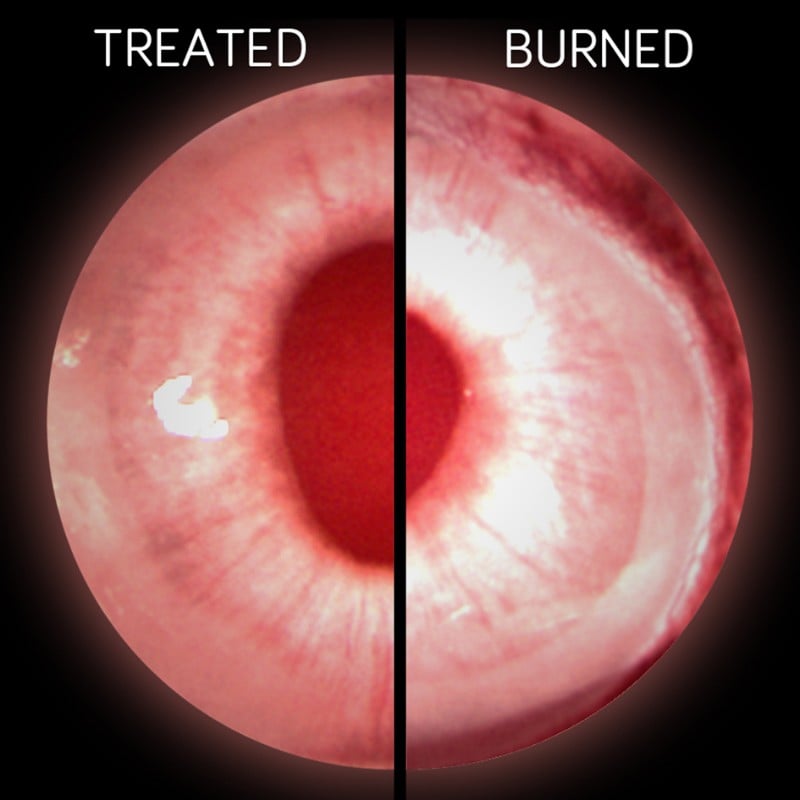Newsletter Signup - Under Article / In Page
"*" indicates required fields
A group of researchers in the UK has developed a potential treatment for corneal injuries, such as those caused by chemical burns, by making surrounding tissue softer and letting stem cells regenerate damaged tissue.
The cornea is a transparent tissue that is important for focusing light onto the retina and guarding entry into the eye. When it’s injured, a cluster of stem cells from the edge of the cornea charge in to heal the injury. However, if this stem cell reserve also gets injured, such as in chemical burns, the stem cells are unable to repair the damage. Current treatments for these injuries, such as corneal transplants, can be costly and sometimes ineffective.
A research group from Newcastle University, UK, found that the cornea becomes stiff during injuries, which causes the stem cells to malfunction. To treat this, the group is developing a way to kick stem cells back into action. They are doing this by softening up the cornea with the application of the enzyme collagenase, which breaks down the structural protein collagen, and is already approved for treating connective tissue diseases such as penile curvature.

“By understanding how corneal epithelial stem cells sense their natural environment, we are now able to reproduce it within the body, and through this, control cell behavior,” Ricardo Gouveia, one of the lead researchers, told me. “This is the first time such ability to control stem cell function was demonstrated.”
In a study published in Nature Communications, the group established the therapeutic potential of this approach in human corneas in lab dishes, as well as in rabbits. The group eventually plans to test the treatment in the clinic, though they first need to find funding, as well as commercial partners.
“We believe that corneal research is currently a hot topic, and we will continue to work hard to further develop the field,” Gouveia told me. “Hopefully our discoveries will emphasize the benefits of investing in research, and consequently attract the attention of the public as well as of research funding bodies.”
Images from Shutterstock and Newcastle University
Are you interested in eye disease R&D?







